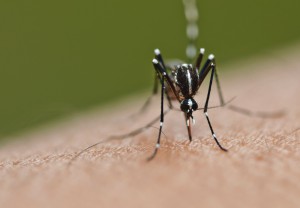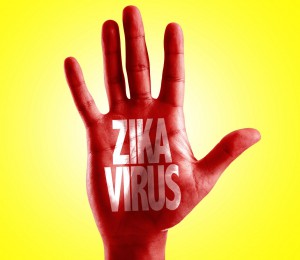- FREE SHIPPING ON $40 AND ABOVE
Zika Virus is one of the many other diseases spread by mosquitoes; Dengue and Chikungunya being the other two of such diseases. It grows in small ponds and vessels of water, like a flower pot or the puddle. There are inadequate tests for the Zika virus disease and no treatments for it other than supportive care. Zika is spread by the Aedes genus of mosquitoes. That includes the Aedes aegypti mosquito, which also spreads dengue virus, yellow fever virus and Chikungunya. It can also be spread by Aedes albopictus mosquitoes, normally known as the Asian tiger mosquito. Zika virus doesn't spread person to person. But rather like malaria, people are the cause for spreading the virus. A female mosquito when bites a person suffering from this virus can then infect another person by its bite. Symptoms may include fever, headache, conjunctivitis, rash, myalgia, and arthralgia. Other less common symptoms reported include: anorexia, diarrhea, constipation, abdominal pain and dizziness. No deaths have been reported due to this virus.

What should pregnant ladies know about Zika Virus?
Zika causes minor symptoms in adults, but has been connected to microcephaly in thousands of babies. Lately, the Zika virus was not generally connected with the congenital brain condition. But in the past four months, microcephaly cases in Brazil rocketed to 3,500, and 46 babies died. For comparison, there were only 147 cases altogether in 2014. Health officials dread the sudden raise may have somewhat to do with pregnant women getting infected with Zika virus, which had also been spreading in Brazil.
What is microcephaly?
Microcephaly is the underdevelopment of an infant's head, brain or both that commonly happens during pregnancy but can also occur shortly after birth. Until recently, a Zika virus infection was not usually thought of as a probable cause. Microcephaly has also been recognized for problems in the formation of the skull, genomic problems, Down syndrome or a lack of oxygen to the brain. Drugs, alcohol and exposure to some chemicals during pregnancy can also contribute to an embryo suffering from microcephaly.
What is the current recommendation for travelers?
The only way to avoid infection is to avoid mosquito bites by using mosquito repellents, using nets and wearing full covered attires. There is no medicine or vaccine available that prevents Zika virus infection. Due to the possible link between Zika virus infection and birth defects, pregnant women are strongly advised to be mainly cautious in avoiding mosquito bites. The Center for Disease Control USA advised pregnant women to not travel to select countries in Latin America and Caribbean where the virus is currently spreading for time being. These 14 destinations should be avoided — Brazil, Colombia, El Salvador, French Guiana, Guatemala, Haiti, Honduras, Martinique, Mexico, Panama, Paraguay, Puerto Rico, Suriname and Venezuela.
What can you do to protect yourself from Zika Virus?
Currently there is no vaccine designed for Zika Virus. To detect Zika, a blood or tissue sample from the first week in the infection must be sent to an advanced laboratory so the virus can be detected through molecular testing. Until now there was no need for the vaccine since Zika virus was largely under the radar but now due to the sudden spread of the virus makes experts say it should be easy to make a vaccine against Zika. Meanwhile for prevention measure you can do is to avoid getting mosquito bites. Get plenty of rest .Drink fluids to prevent dehydration. Take medicines, such as acetaminophen or paracetamol, to relieve fever and pain.
